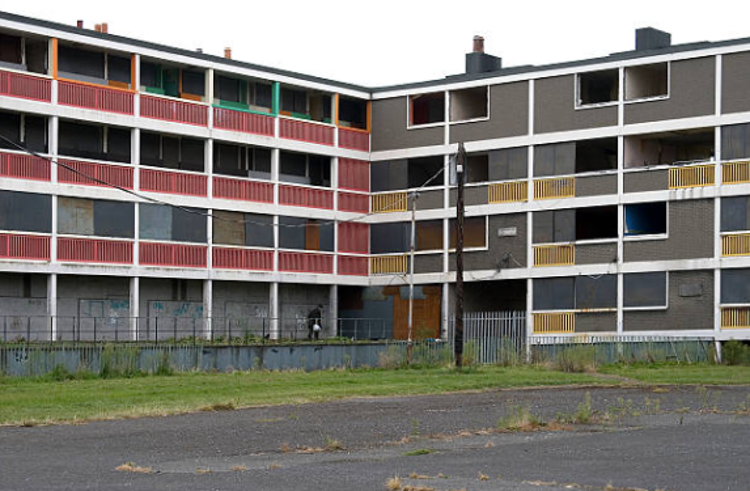Housing is a Structural Problem, Start Treating it Like One
Last month Apollo House was sentenced to demolition. The office block which served as a symbol of hope during the beginning of the homelessness crisis last year will be part of a €50 million euro development. A development which will provide the people of Dublin with an 11 storey office building, shops, restaurants, a public plaza, and no housing.
The timing of this development is representative of how housing and homelessness is a structural, systemic issue. However our political discourse is focused on portraying homelessness as an individual issue, or not an issue at all.
An individual or non-issue
Former head of the Department of Finance, John Moran, told a property conference that the “housing market cannot be ‘consumed’ by measures on homelessness.” He advocated that our obsession with building around Dublin as a economic and administrative centre was to be addressed first and foremost. Presumably, homelessness would be solved along the way.
He added that the Irish obsession with owning a suburban home with a front and back garden was to blame for the unsustainable sprawl around Dublin. This espousal ties in perfectly well with our current political and media discourse on housing and homelessness. Every problem is one of individual making. The problem isn’t that Dublin has always been the economic hub of the country forcing people to flock to it for work; no, it’s the people’s selfish desire for gardening.
This logic extends to the homeless themselves. Eileen Gleeson, director of the Dublin Region Homeless Executive, stated that long-term homelessness was the result of “bad behaviour probably, or behaviour that isn’t the behaviour of you and me,” and could not be solved by the efforts of ad hoc volunteer groups. The counter-intuitive efforts Gleeson referred to was the handing out of food and clothing.

Leo Varadkar told the Fine Gael ard fheis last month that Ireland had “one of the lowest homelessness (rates) by international standards compared with our peers.” People like David Quinn jumped up to support the Taoiseach in this statement, arguing that homelessness was higher in heralded social democracies like Sweden and that the public concern was fuelled by “emotional blackmail” and “hysteria” from the opposition.
This isn’t true, or at least isn’t a good faith reading of the statistics. Ireland’s homelessness rate is lower than Sweden but this isn’t due to Sweden having a bigger housing crisis than us. It’s due to our definition of homelessness which only includes rough-sleepers. Sweden, as the more progressive country, includes couch surfers, people forced into house sharing, and much more.
Varadkar and Quinn’s reliance on the state is reminiscent of Islamophobic right wingers who proclaim that Stockholm is the rape capital of the world to suit their anti immigrant worldview without considering that the Swedish definition of rape has a broader basis than others.
It’s the system, stupid.
The Irish Housing crisis and homelessness are systemic issues brought about by the same force; the unavailability of affordable houses. Of course the solution to this problem is more complex than I can portray in one opinion piece but what I can say is that attempting to ignore this problem isn’t helping. Attempting to blame the homeless and the charities which try to feed and clothe them isn’t helping.
The same day that Gleeson was berating the homeless for deserving their fate and charities for daring to try to help them it was revealed that less than one percent of the required social housing for those on waiting lists had been constructed. Again, to Gleeson, the problem isn’t the systemic lack of housing; it’s that the homeless have earned their fate through “bad behaviour.”

Non profit agencies have been tasked by the government to provide a third of the 50,000 planned social housing units for 2020. Eurostat has asked the government to consider placing these agencies on the government balance books. If this happens these non profit agencies would be denied critical state funding through the previously used method of borrowing from local authorities. This is far more impactful on homelessness than any ad-hoc soup kitchen.
The rental market is also heading towards crisis. Rents have risen for the 21st consecutive quarter and the average rent across the country is €1,198; an 11% increase on the previous year. The compiler of Daft’s report, Ronan Lyons, stated that to afford any average house in Ireland a household must earn at least €45,000. He then added that €45,000 is an above-average income.
The Irish housing problem isn’t a question of individuals not working hard enough or not getting good enough jobs. It’s a systemic issue where there is a disconnect between household income and rent, and a breakdown of government and market structures. If you need an above average income to afford any average house in Ireland, then the system is broken.
